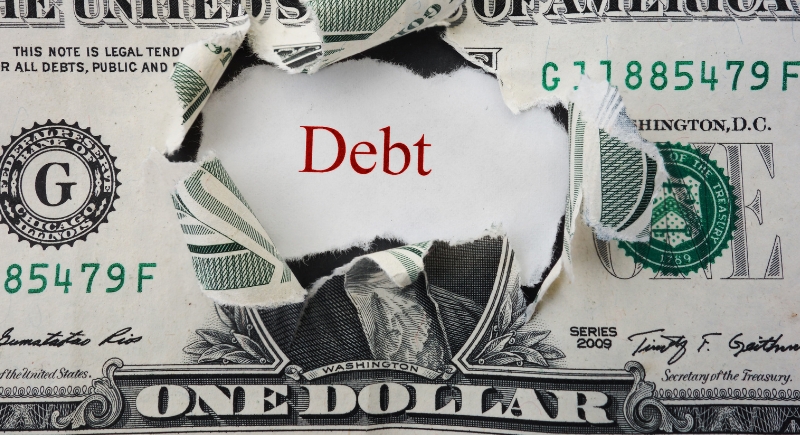Money advice gets shared nonstop online, but not all of it is useful or honest. Some influencers earn their income by simplifying complex topics and pushing financial shortcuts that sound convincing. However, these fall apart on closer look. What seems like helpful advice serves their brand or business model, not your financial health.
Here are a few claims that gain traction not because they’re right, but because they go viral. And they’re making some people very wealthy in the process.
“You Can Just Copy What I Did”

Credit: Getty Images
Many influencers present their own journey as a repeatable formula. They treat their outcome as proof that you can succeed by doing exactly what they did. But strategies don’t exist in a vacuum. Results depend on your timing, skills, location, and circumstances. A copied path often leaves people frustrated when it doesn’t produce similar results.
“Skipping Your Pension Will Make You Richer”

Credit: Getty Images
Following advice to skip workplace pensions can lead to a significant loss in future retirement income. Employer contributions, tax relief, and decades of compound growth are hard to replace once missed. Instead of relying on viral videos, you should check pension rules, run projections, and weigh long-term trade-offs.
“This One Product Will Fix Everything”

Credit: Getty Images
When someone promotes a financial product as the answer to everything—retirement, college savings, emergency funds—they’re usually trying to sell it. This approach flattens complex issues into simple solutions for marketing purposes. It also discourages people from exploring better-fit tools.
“You’ll Make Thousands in Just a Month”

Credit: Getty Images
Claims like “make $10k in 30 days” work because they grab attention. But according to multiple surveys, the majority of Americans making financial progress do so over years—not weeks. These promises create unrealistic expectations and lead people to chase risky strategies without knowing the full picture.
“You’re Broke Because You Think Wrong”

Credit: Canva
Framing money problems as personal mindset issues can leave people feeling isolated and at fault for circumstances they can’t fully control. It also downplays the role of wages, housing costs, or unexpected expenses in shaping financial stability. Influencers tend to push the idea that wealth comes from “thinking rich” or raising your energy.
“You Don’t Need Qualifications to Give Financial Advice”

Credit: pexels
Financial professionals take certification exams, follow compliance standards, and risk penalties for bad advice, but influencers don’t. That doesn’t mean all unlicensed creators give poor advice, but it does mean they operate without oversight. When people mistake popularity for expertise, they make decisions based on personality instead of facts.
“My Course Has All the Secrets You Need”

Credit: Getty Images
Online money courses make huge promises. You’ll learn “how to scale,” “build passive income,” or “retire early.” But many contain recycled advice, vague concepts, or outdated methods. These products typically rely on a creator’s charisma, rather than their teaching ability. You might end up with motivational content disguised as a financial roadmap.
“All Debt Is Bad Debt”

Credit: Getty Images
Focusing on paying off the most expensive debt first while still saving and investing builds more stability than wiping out every balance at once. This approach keeps emergency funds intact and allows long-term plans to grow alongside repayment. Meanwhile, individuals online promote a strict zero-debt philosophy and tell you to treat all borrowing as equally harmful.
“Passive Income Is Quick and Effortless”

Credit: Getty Images
You may have seen people present passive income as something that runs itself once you set it up. In reality, it typically starts with months—or years—of work, consistent promotion, and sometimes upfront costs. Creating a rental property, digital product, or investment stream takes planning and ongoing maintenance.
“You Should Just Start Investing Immediately”

Credit: Getty Images
Advice like “just start investing” ignores timing, risk tolerance, and market cycles. It also assumes you’re financially ready. But keep in mind that content creators sometimes earn money when you use their referral codes, so they benefit regardless of how your portfolio performs. Investing can be smart—but doing it without understanding the process creates risk.
“Personal Branding Is the Key to Wealth”

Credit: Getty Images
Turning yourself into a brand takes time, consistency, and comfort with being online constantly. Individuals who promote branding as a financial solution usually already have the platform to make it work. Building that presence without a strategy or support system rarely leads to income. It often adds pressure and unpaid labor.
“Financial Advisors Are Outdated and Unnecessary”

Credit: Getty Images
A licensed financial advisor gives guidance that’s tailored to your situation. They weigh income, goals, and risk tolerance before suggesting strategies, and they can be held accountable if their advice causes harm. By contrast, creators can promote the same idea to thousands of people without checking its accuracy.
“Budgeting Fails Because You’re Not Disciplined”

Credit: Canva
Blaming failed budgets on weak willpower can make people abandon the idea altogether, even though the issue often lies in rigid systems that don’t adapt to real life. Sudden expenses or irregular paychecks can derail even the most careful plans. Various creators reduce the problem to discipline so they can sell planners or apps as the fix.
“Disclaimers Aren’t Needed If I’m Just Sharing”

Credit: Getty Images
In a 2024 analysis by Almond Financial, more than 85% of TikTok financial creators shared advice without a proper disclaimer. That matters because disclaimers tell viewers when advice is general or potentially risky. Without them, audiences assume creators speak with authority. It blurs the line between personal stories and professional guidance.
“Multiple Income Streams Guarantee Security”

Credit: Getty Images
The claim that having several small income streams makes you financially safe sounds convincing, but not all streams carry equal weight. Spreading energy across side hustles that pay little can drain time without building real stability. A better approach is to focus on one or two meaningful sources that scale, then expand once those are steady.
